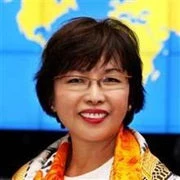
Creating jobs and increasing productivity are at the top of policymakers’ agenda across the world. We heard this message during the World Bank-IMF Annual Meetings and during the UN General Assembly meetings in New York last month. We read about disaffected youth in rich and less rich countries who have university education but can’t find jobs. I’m not going to argue that education holds the key to these current issues. Undoubtedly, current high unemployment rates owe a lot to the ongoing global economic slump.
Nonetheless, the current economic crisis forces us to examine why too many workers are unprepared to meet the demands from the modern workplace, particularly in increasingly competitive economic environments. Evidence suggests that education systems in many countries are failing young people with respect to basic skills as well as high-level cognitive skills such as critical analysis, problem solving and communication.
Recently, we co-hosted the launch of a new Series on Early Child Development with The Lancet, here at the World Bank. I chaired the event where top researchers and practitioners presented new global research findings and discussed their implications. The Lancet series suggests that to explain the shortage of skills in developing countries we should go far, far earlier than when young people enter the labor market. Professor Susan Walker, representing her co-authors, told us why we have to start right at birth to invest in the technical, cognitive and behavioral skills conducive to high productivity and flexibility in the work environment.
They emphasized the importance of nutrition, health care, and cognitive stimulation at an early age, and showed that disadvantages early in life are difficult to recover from later in life. They concluded that effective ECD programs can have a very high payoff, with annual rates of return calculated to be from 7 to 16 %.
Our Education Strategy for 2020 recognizes that a solid foundation for learning begins with “investing early.” What are we doing here at the World Bank?
• Over the last 10 years, we have invested more than US$1 billion in early child development through projects supporting early childhood interventions in countries such as Mexico, Brazil and in Europe and Central Asia.
• We have focused on helping share knowledge and advance the research agenda in this area with analytical work, such as the findings summarized in the edited volumes Early Child Development: From measurement to Action (Mary Young, editor) and No Small Matter: The Impact of Poverty, Shocks, and Human Capital Investments in Early Childhood Development (Harold Alderman, editor); a handbook for policy makers Investing in young children: An early childhood development guide for policy dialogue and project preparation by Sophie Naudeau and co-authors; and regional and country studies including The Promise of Early Childhood Development in Latin America and the Caribbean by Emiliana Vegas and Lucrecia Santibanez; and SABER-ECD, which collects, analyzes, synthesizes and disseminates information on ECD policies across countries.
• We understand the need for informed evidence based policy making and have ongoing randomized control trials to help better understand what type of interventions may have the greatest impact on ECD in different settings. For example, we are working in partnership with Save the Children in Mozambique, we are studying parenting programs in Chile, and alternative preschool approaches in Malawi.
To strengthen the impact of our work on ECD, we need to build the work on high-quality and timely evidence, on partnerships around results, and on committing to a multi-sectoral approach. Examples of the type of partnerships we mean include the work of the First 1000 days, a partnership that helps tackle the crisis of malnutrition.
As we all work to ensure our investments produce results, investing in early childhood development, as highlighted in the new research from the Lancet and our new strategy needs to be at the forefront of all of our agendas. Watch the video of the full event here and let us know what you are doing to help invest early.


Join the Conversation